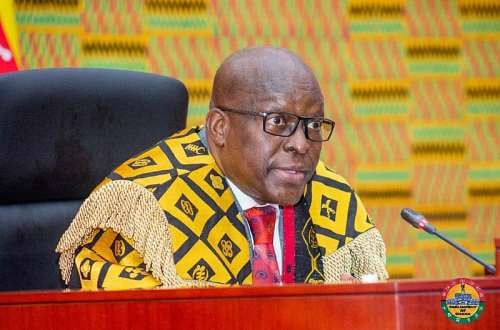Alban Bagbin, the Speaker of the Parliament of Ghana, has expressed significant concerns regarding what he views as increasing interference by both the judiciary and the executive branches in parliamentary affairs. Bagbin’s apprehensions stem from an observation that such encroachments could jeopardize the authority and overall functionality of Parliament, which he emphasizes is essential for maintaining the democratic structure of the nation. He articulated his stance by stating that recent actions from these branches pose a direct challenge to Parliament’s jurisdiction and powers, which he believes encapsulate the sovereign will of the Ghanaian people. This emphasizes a crucial separation of powers that underpins democratic governance.
In his role as Speaker, Bagbin finds himself in a historically unique position, especially as the first to collaborate with a president from a different political party amidst a politically divided Parliament. He underscored the importance of cooperation and collaboration between rival parties, particularly in light of the evenly split nature of the current legislative composition following the 2020 elections. According to Bagbin, this dynamic should necessitate active dialogue and coordination among the branches of government. However, he has lamented that the current political climate seems to overlook this essential principle, thereby exacerbating tensions among the governmental institutions.
The backdrop to Bagbin’s concerns is a notable conflict between Parliament and the Supreme Court, particularly over recent developments involving the declaration of four parliamentary seats as vacant. This specific point of contention has heightened the friction between these branches of government, showcasing the challenges that arise when legal interpretations intersect with legislative authority. Bagbin referred to a case initiated by Alexander Afenyo-Markin, a Member of Parliament for Effutu, which temporarily halted the execution of a ruling from October 17 that could potentially impact Parliamentary decisions.
Bagbin firmly believes that such judicial interference not only disrupts parliamentary business but also undermines the foundational principle of separation of powers. He articulated his viewpoint by asserting that the powers of the judiciary should not encroach upon those of Parliament, drawing attention to the crucial balance of power that must be maintained in a democratic system. According to Bagbin, the ongoing legal disputes may signify a power struggle among the branches of government, one that poses risks to the health of Ghana’s democracy.
His comments resonate with a broader context of democratic principles, where the independence of each governmental branch is paramount for a functioning democracy. Bagbin calls for respect and adherence to the constitutional boundaries that delineate the scope and authority of each institution. The growing tension, if left unchecked, could set a precedent that threatens not only the workings of Parliament but also the public’s trust in democratic processes. In his view, the judicial branch’s overreach could result in a scenario where the checks and balances designed to safeguard democratic governance are severely compromised.
In summary, Alban Bagbin’s remarks reflect a deep concern regarding the current state of democratic governance in Ghana. He underscores the importance of collaboration and mutual respect among the branches of government while highlighting the risks posed by encroachments from the judiciary and executive. By emphasizing the principle of separation of powers, Bagbin warns that ongoing tensions and power struggles could undermine the essence of democracy in Ghana. The need for constructive dialogue and adherence to constitutional mandates emerges as imperative for preserving the integrity and functionality of Parliament, essential for upholding the will of the Ghanaian people.














